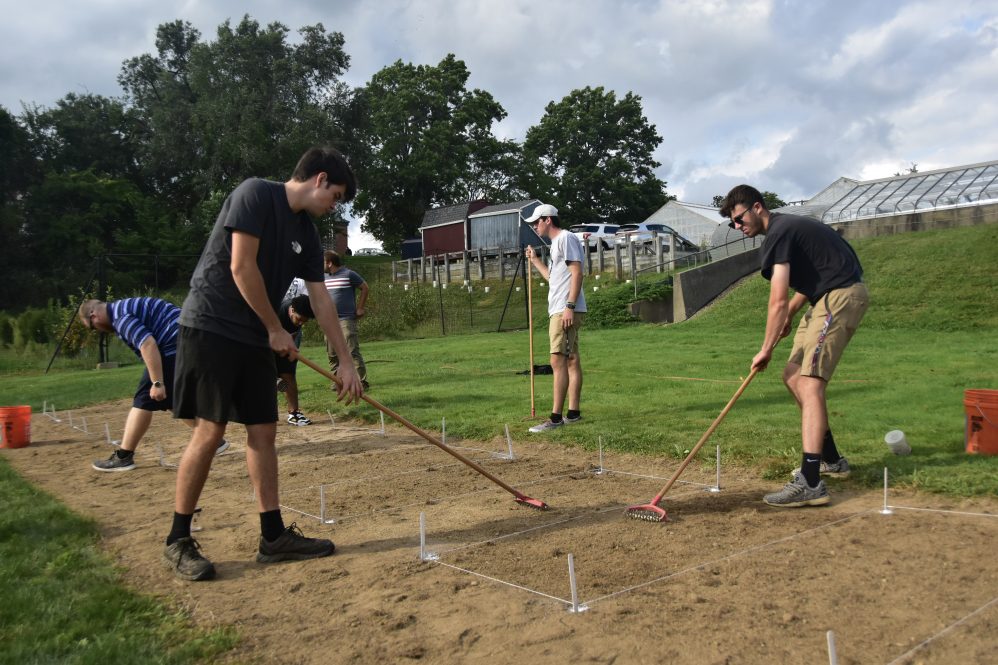While most high school students take classes like P.E. and algebra, some Connecticut teens are learning about soil science, floral art, and biotechnology.
The UConn Early College Experience (UConn ECE) program gives students across the state the opportunity to take UConn classes at their own high schools.
The College of Agriculture, Health, and Natural Resources (CAHNR) offers nine courses – eight in sustainable plant and soil sciences and an introductory course on environmental science. In total, CAHNR offers 86 sections of these courses at 60 schools. In the 2020-21 school year, 1,400 Connecticut students enrolled in these courses.
The rigorous content is on-par with what students would learn if they were taking the course on campus, but it is taught in the familiar setting of their own high school. These courses are hands-on and lab intensive.
“Through this program, students enter their undergraduate years with a wealth of knowledge as well as other skills necessary to succeeding in college like time management and effective scientific communication,” says Julia Kuzovkina, professor of plant science and UConn ECE faculty coordinator.
UConn ECEclasses turn into graded credits on a students’ transcript at UConn and transfer to most other colleges and universities at a reduced cost.
“Taking UConn ECE courses during high school can help students save money during college or give them the freedom to pursue a double major or minor they otherwise would not have time to complete in four years,” says Brian A. Boecherer, executive director of the Office of Early College Programs.
The courses offered through CAHNR’s academic programs provide a unique leg up to students interested in pursuing a career in the fields of agriculture or environmental science.
Offerings include introductory courses on turfgrass management, horticulture, agricultural technology, environmental soil science, and floral art. There are also options for more advanced courses in biotechnology, plant breeding, and advanced floral design.
The environmental science course offered by the Department of Natural Resources and the Environment fulfills both environmental literacy and science general education requirements for UConn students. It can also inspire a newfound passion for environmental issues.
“It makes a difference for a lot of students,” says Morty Ortega, professor of natural resources and the environment and UConn ECE faculty coordinator. “Many students suddenly become very interested in the environment.”
The course teaches basics of environmental science through labs and field work to examine water quality, pollution from cars, and biodiversity.
“The idea of this course is to make you think about how absolutely everything is linked to the environment,” Ortega says. “And you also have to think about how you are affecting the environment.”
Thomas Vrabel has been teaching UConn ECE plant science courses at Trumbull High School since the program began. Vrabel received the UConn ECE award for excellence in course instruction in 2021.
“I find it to be a very rewarding experience,” Vrabel says. “We have very motivated students who are interested in this area.”
Vrabel says many of his students have attended UConn, leveraging what they learned in their UConn ECE courses to make the most of their college experience.
“This is our chance to reach out to students to stimulate future interest and engagement in our program,” Kuzovkina says.
The partnership between high schools in the UConn ECE program and the University extends beyond the classroom. UConn ECE instructors are invited to campus each year to participate in professional development, seminars, and field trips for students.
“I’m very proud to be a part of it and see the success students have had from having exposure to these UConn classes while in high school,” Vrabel says.
Follow UConn CAHNR on social media



